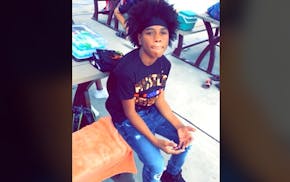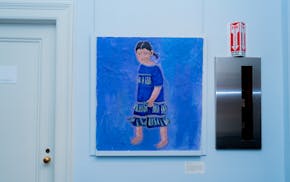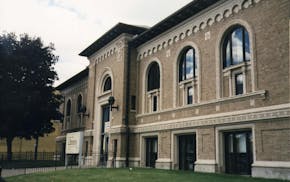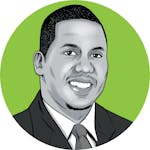Earlier this week, I sat in the front row of my daughter's spring concert, as kids flexed their vocal cords to a series of songs. Their music teacher scrambled to keep them all in line, a feat that only multiplied my appreciation for educators who somehow manage to deal with elementary school children all day.
At 4 a.m. that morning, I had hopped into an Uber in San Antonio after the Final Four. The driver told me a story about a move from the West Coast, a lost love and other details of his life that I just didn't care to hear so early in the morning on my way to the airport.
While he talked, however, I thought about everything that awaited back home and the world I've built around me. It was not always this way.
A decade ago, my identity and my work were more intertwined. As more success arrived, I indulged in the allure of work as both a status symbol and way of life. To have a job with a public profile only enhanced those ideas.
But as I got older, I separated myself from work as an indicator of my value as a man, a father and a human being. I now understand that for me, it was — and is — one of my most important journeys.
I also believe, however, that the term "workaholic" is misguided. My grandfather worked back-to-back shifts at a steel mill in Milwaukee. He had an hour in between to come home and eat. Those were 16-hour days. My grandmother cared for a family of 14 and also acted as a midwife for Black mothers who could not attain adequate medical care in Milwaukee, the most segregated city in the country. They were not workaholics. They were survivors.
There are folks all over this country who must work multiple jobs to afford their lives and support their families. I'm from a large extended family full of good people in those situations. Those with college educations and salaried positions — in my experience — are more vulnerable to creating lives that prioritize work over everything else. I felt that way then.
I thought about my own work habits on my flight from Texas, as economic tidal waves threaten to disrupt every industry in the country. As a matter of fact, I don't know anyone in any field right now who feels completely secure. There have been reports of layoffs from a multitude of corporations. In a way, this feels like the start of 2020 all over again.
That year, we were collectively reminded about the value of community and the reality that community looks different for everybody. A person surrounded by dozens of friends and family members is not greater than a couple with a devotion to a beloved pet. Your world is whatever you make it, whatever you need it to be. And while I don't know what's ahead, I do believe the maintenance, expansion and connection to our communities deserve top billing for us right now.
I didn't know that a decade ago. My girls have always been my top priorities, but work always finished a smidge below. I did not know then how to properly and consistently broaden my community and shed attachment to work as a virtue.
Whenever young people ask me about my profession, they always want to know how they can hop on the fastest elevator to the top, whatever that means. They want the money, the prestige and sense of achievement they believe their dream job will offer. They rarely ask what — or who — they might lose along the way. That's why they're often surprised when I tell them to make relationships and connections with real people more important than their careers. Because nobody gets to do the thing they really love to do for as long as they'd like to do it.
The recent economic winds have shifted friends of mine into new roles, new careers and new industries. Some of them have had to work a few gigs to match what they had before calamity struck. But they were fortunate that they were steeped in love outside the office. It cushioned the fall.
A decade after I too grappled with an identity crisis attached to my work, I was excited to get into the Uber in San Antonio. Well, I hated the 3:30 a.m. wakeup call from the hotel. But I was glad when I reached the airport and made the flight so I could see the people I love back home.
Because work now is just something I do. But they are who I am.
And, in the months and years ahead, I'll have to make sure I remember that.

Medcalf: This summer, let's all be more vigilant about our children — and everyone else's

Medcalf: Mia program provides safe space for young people to create

Medcalf: George Floyd's daughter, now 11, on life without her dad: 'It's hard'

